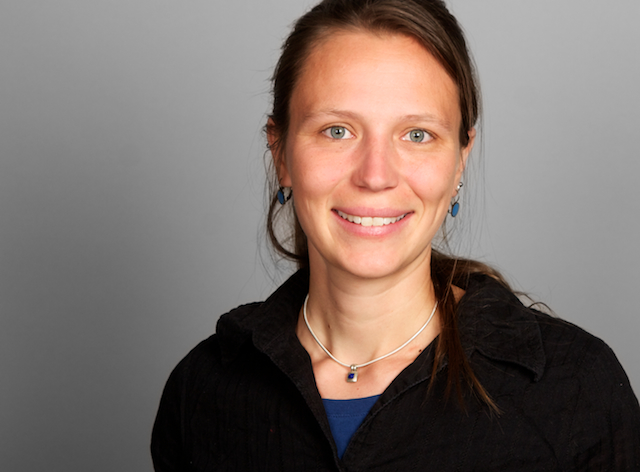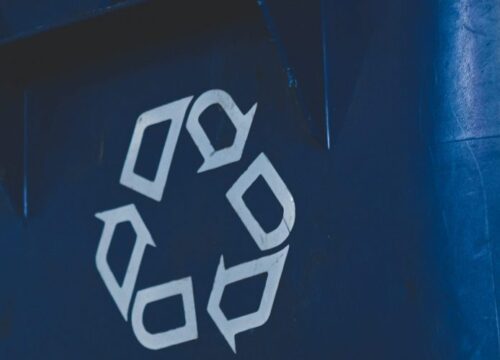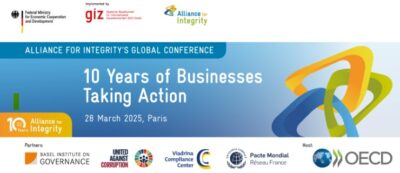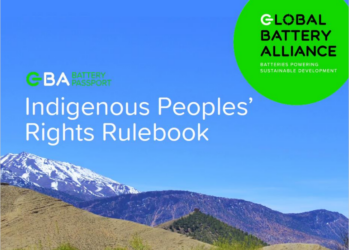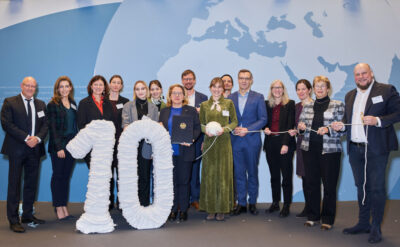Two years ago, the PREVENT Waste Alliance, or PREVENT for short, started its work. The aim of the multi-stakeholder partnership, founded under the patronage of the Federal Development Ministry, is to reduce waste, recycle raw materials and eliminate pollutants.
With the PREVENT Waste Alliance, the Federal Ministry for Economic Cooperation and Development (BMZ) has significantly upgraded the field of action of German development cooperation with the topic of circular economy. PREVENT is characterised by the joint commitment of its diverse members and serves as an international cooperation platform with four main areas of action. First, it aims to promote exchange of knowledge on the topic of circular economy; second, to connect different perspectives and act in international, cross-sector partnerships; third, to incubate and pilot innovative, scalable solutions; and fourth, to contribute to shaping international guidelines and standards for circular economy approaches.
To this end, PREVENT members are involved in thematic working groups (WGs), which have come together on a demand-driven basis and meet regularly to plan and implement activities. The main topics are: Plastic waste, waste electrical and electronic equipment (e-waste), and improving the framework conditions on municipal level.
Additionally, there are cross-cutting issues addressed within PREVENT. These include topics that are relevant for different material streams such as circular financing mechanisms, or awareness raising and behaviour change. For the latter, members can for example obtain guidance for waste segregation and prevention campagins from organisations with expertise in this field.
With its extensive network, PREVENT takes on the role of a “matchmaker” so that synergies between actors worldwide are identified and exchange and potential cooperation are facilitated. It also uses its wide networks to share developed knowledge with the international community. Thus, several publications have already been published on the topic of circular economy.
In 2020, PREVENT used a call for projects to search for innovative and sustainable solutions that contribute to a circular economy in low- and middle-income countries. Proposals from eight project teams were selected and are receiving BMZ funding to test their approaches in 15 countries until summer 2022.
s already mentioned, PREVENT has published a number of knowledge products. In May 2020, the publication “Prevention of plastic waste in production and consumption by multi-actor partnerships” was released. The study presents recommendations for action along the value chain, which are based on good practices of PREVENT members and are intended to promote reusable solutions in partner countries. In September 2020, PREVENT published a toolbox on Extended Producer Responsibility. Although it was only published a few months ago, the materials are highly demanded and are already being used worldwide.
In order to maintain its networking function despite COVID-19, PREVENT has been organising weekly virtual “matchmaking sessions” since May 2020. Members and external stakeholders can present themselves and their work and engage in an informal exchange with other organisations. Through this format, project teams have already formed, synergies have been discovered, knowledge and recommendations have been exchanged, and mentoring programmes have been initiated. The Matchmaking Series is used extensively and appreciated by the members.
In addition to the eight pilot projects that are being implemented since the beginning of 2021, the working group on e-waste has initiated a model project to support e-waste recyclers, which will be implemented by the middle of this year. The aim of the project is to improve the handling of problematic fractions, i.e. the hazardous components of disposed electrical appliances, in the Balkans, Latin America and East/West Africa. The pilot projects are important for testing innovative approaches and developing scalable solutions in the long term.
PREVENT was founded on the basis of several dialogue forums in which stakeholders from different sectors and areas of action within the circular economy sphere agreed on a common vision and common goals. In May 2019, PREVENT was officially launched with 34 founding members – mainly based in Germany. Since then, PREVENT has been growing steadily and is becoming more and more international.
The multi-stakeholder character and its internationality are the central elements of PREVENT. Cross-sectoral cooperation across borders takes into account the diversity of perspectives and ensures the international dissemination of results and approaches.
